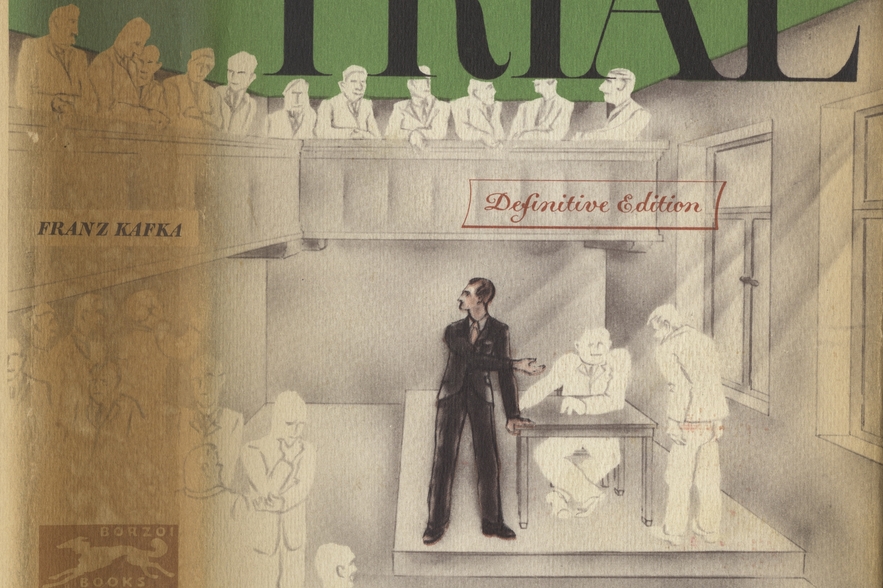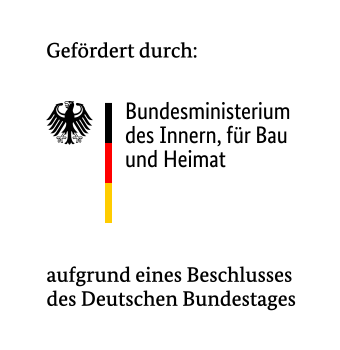
- Diese Veranstaltung hat bereits stattgefunden.
Book Club | Kafka: The Trial | Online
28. März 2024 @ 19:00–20:30 CET

The Book Club of the LBI New York is taking place once a month.
About the Book
Written in 1914 but not published until 1925, a year after Kafka’s death, The Trial is the terrifying tale of Josef K., a respectable bank officer who is suddenly and inexplicably arrested and must defend himself against a charge about which he can get no information. Whether read as an existential tale, a parable, or a prophecy of the excesses of modern bureaucracy wedded to the madness of totalitarianism, The Trialhas resonated with chilling truth for generations of readers. (Description from GoodReads).
About the Author
Prague-born writer Franz Kafka wrote in German, and his stories, such as The Metamorphosis (1916), and posthumously published novels, including The Trial (1925), concern troubled individuals in a nightmarishly impersonal world.
Kafka first studied chemistry at the Charles-Ferdinand University of Prague but after two weeks switched to law. This study offered a range of career possibilities, which pleased his father, and required a longer course of study that gave Kafka time to take classes in German studies and art history. At the university, he joined a student club, named Lese- und Redehalle der Deutschen Studenten, which organized literary events, readings, and other activities. In the end of his first year of studies, he met Max Brod, a close friend of his throughout his life, and the individual responsible for preserving Kafka’s work after his death, and ensuring its publication.
Kafka’s writing attracted little attention before his death. During his lifetime, he published only a few short stories and never finished any of his novels except the very short „The Metamorphosis.“ Kafka wrote to Max Brod before his death: „Dearest Max, my last request: Everything I leave behind me … in the way of diaries, manuscripts, letters (my own and others‘), sketches, and so on, [is] to be burned unread.“ Brod did not follow his request, and in fact oversaw the publication of most of the work of Kafka in his possession. Today Kafka is considered a master writer, whose works are known throughout the world.
Kafka wrote all his published works in German.
About the Guest
Vivian Liska is Professor of German literature and Director of the Institute of Jewish Studies at the University of Antwerp, Belgium. She is also Distinguished Visiting Professor in the Faculty of the Humanities at The Hebrew University of Jerusalem. She has been Visiting Professor at numerous universities, most recently at Yale University in the fall of 2022. She has published extensively on literary theory, German modernism, and German-Jewish authors and thinkers.
She is the editor of the book series “Perspectives on Jewish Texts and Contexts” (De Gruyter, Berlin) and the co-editor of the Yearbook of the Society for European-Jewish Literature and of Arcadia. International Journal of Literary Studies.
She is the editor or co-editor of numerous books, among them the two-volume ICLA publication Modernism, which was awarded the Prize of the Modernist Studies Association in 2008; Contemporary Jewish Writing in Europe: A Guide (2007); Theodor Herzl between Europe and Zion (2007); What does the Veil Know? (2009); The German-Jewish Experience Revisited (2015); Kafka and Universalism (2016); Sartre, Jews, and the Other (2020) and The Idea of Europe (2021.)
Her book publications as author include: Die Nacht der Hymnen (On Paul Celan’s early poetry), Die Dichterin und das schelmische Erhabene (On Else Lasker-Schüler); ‘Die Moderne – ein Weib’ (On turn of the century women novelists); Giorgio Agambens leerer Messianismus (2008) Translated into Hebrew in 2011; When Kafka Says We. Uncommon Communities in German-Jewish Literature (in 2009) translated into Hebrew (in 2023) and German (in 2011) and German-Jewish Thought and its Afterlife. A Tenuous Legacy (in 2017) translated into German as Prekäres Erbe (2021).
Donnerstag, 28. März 2024
19:00 – 20:30 Uhr (MEZ)
Online
Details
- Datum:
- 28. März 2024
- Zeit:
-
19:00–20:30 CET
- Veranstaltungskategorien:
- LBI New York | Berlin, Lesekreis, Veranstaltungsreihe
- Veranstaltung-Tags:
- jüdische Geschichte, LBI New York | Berlin, Lesekreis, Literatur, Veranstaltungsreihe
Veranstaltungsort
- Online


